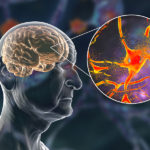By Bonnie Jenkins, Advanced Natural Wellness
My grandfather used to have a saying: “I’ll forget more than you’ll ever know.” It may not have been the nicest thing to say, but it does highlight the fact that, as we age, we do tend to be a bit more forgetful. But when simple forgetfulness becomes serious – forgetting how to use everyday things, like a pencil or the inability to recognize common objects – it may signal early Alzheimer’s disease.
Right now there are more than 5 million Americans who are suffering from this mind-robbing disease – a 10 percent increase since 2002. And the forecast doesn’t look hopeful. In fact, scientists predict that the number of Alzheimer’s cases will grow to 7.7 million by 2030 and 16 million by 2050.
Since there is no effective cure for the disease, these people and their families face a bleak future. But, while modern medicine has failed to come up with a solution, a simple nutritional change could help to prevent Alzheimer’s or maybe even slow its progression.
Plaque Attack
Alzheimer’s disease progresses in stages, gradually destroying memory, reason, judgment, language and eventually the ability to carry out even simple tasks. In the end stages of the disease, patients become completely disoriented and must rely on caregivers for even their most basic needs.
People with Alzheimer’s lose their cognitive ability as their brain cells are attacked and destroyed by a build-up of proteins in the brain. While scientists don’t know what triggers this build-up, they have identified two proteins that contribute to Alzheimer’s. The first are plaques made up of the protein beta-amyloid that accumulates in the spaces between nerve cells. The second type is tau – a protein that becomes toxic when it accumulates and twists inside nerve cells in the brain, ultimately forming tangles.
MD Exposes the Hidden Danger to Your Eyes

When your eyesight starts to fail, it's a real problem. Suddenly you can't go to the grocery store... you can't get to the doctor if you have an emergency... you can't meet your friends for dinner…
Your "regular" doctor doesn't have time to keep up with the latest research. And the same goes for eye doctors. They go to school to learn how to fit you for glasses and contacts, but have no way of preventing the damage and loss of eyesight that threatens your freedom and independence.
Let me show you something that explains a LOT about how your eyes work.
In my FREE Special Report, I'll show you a HUGE, untapped resource for your eyes that safely and naturally restores clear, effortless eyesight.
Click here to get started...
Autopsies have shown that most people develop some plaques and tangles as they age, but people with Alzheimer’s develop far more than those without the disease. Scientists think these plaques and tangles block the nerve cells’ ability to communicate with each other, making it difficult for the cells to survive.
What’s Your Threat Level?
Like many health problems, the chances of getting Alzheimer’s disease increase with age. Fortunately, most of us won’t suffer from Alzheimer’s, even at advanced ages.
But there are two definite factors that increase your risk. If a close relative – a parent, sibling or grandparent – has been diagnosed with Alzheimer’s disease, you are twice as likely to develop it. You also have a greater risk if you have a close relative with Down’s syndrome.
Although age and family history are out of our control, several lifestyle factors can influence a person’s risk of developing Alzheimer’s disease. Evidence suggests that exercise and a healthy diet reduce Alzheimer’s risk. Avoiding tobacco, limiting alcohol consumption, staying socially active and engaging in intellectually stimulating activities have also been shown to have a protective effect against Alzheimer’s disease.
There is also a strong link between heart health and brain health. People who don’t suffer from heart disease are at a lower risk of developing Alzheimer’s than those who have cardiovascular problems.
Finally, a connection has been found between serious head injury and an increased risk of developing Alzheimer’s, so it’s smart to practice safety. Wear your seat belt and rethink engaging in activities where there is a high risk of falling or of a concussion.
Take Three
The World's Quickest Solution for Ending Prostate and Urinary Misery
This has recently been revealed to be one of the only real breakthroughs in prostate health.
The seeds of a strange fruit (sometimes called "Chinese Apples") hold powerful phytonutrients that are a revolution in prostate health.
In fact, UCLA and Veterans Administration research have now proved this to be true.
Not only that, but it may be the worlds quickest solution for ending prostate misery.
Simply stated, these phytonutrients represent a huge step beyond beta sitosterol, saw palmetto, and other phytosterols alone.
Simply click HERE if you want to have fast prostate relief...restful, uninterrupted sleep...no more constant "urges to go"...enhanced virility...and optimal prostate support for life.
Omega-3 fatty acids can also reduce your risk of Alzheimer’s. It has been shown that one specific type of omega-3 found in fish oil, docosahexaenoic acid (DHA), helps guard against the accumulation of tau. It also decreases beta-amyloid formation by reducing levels of presenilin, the enzyme that separates beta amyloid from its parent protein.
DHA also attacks beta-amyloid plaques on another front. Researchers at the University of California, Los Angeles, found that this omega-3 boosts the production of a protein in the brain that destroys the plaques. Reduced levels of LR11 increase beta-amyloid production and may be a significant genetic cause of late-onset Alzheimer’s disease. The UCLA team also discovered that even low doses of DHA increased the levels of LR11. But DHA isn’t the only omega-3 in fish oil that protects against Alzheimer’s. Eicosapentaenoic acid, or EPA, can also guard the brain. One study of more than 1,200 French seniors found that those with high levels of EPA circulating in their bloodstream had a 31 percent lower incidence of dementia. The credit may go to EPA’s anti-clotting and anti-inflammatory actions, which promote a healthy blood supply to the brain and lower inflammation.
So how much fish oil do you need to take to stave off the threat of Alzheimer’s? Most doctors recommend 3-4 grams daily. But to avoid toxins that can contaminate some fish-oil supplements, make sure you choose a high-quality, purified fish oil.
One Last Thing …
Everybody has occasional memory lapses. Just forgetting where you put the car keys doesn’t mean you have Alzheimer’s disease. Here’s the good news: Making sure your brain has the omega-3 fatty acids it needs doesn’t just protect against Alzheimer’s – it may keep you sharp well into old age.
For years, scientists believed that the nerve cells that do the brain’s work could only be lost with age, not regenerated. But there is some evidence that new nerve cells can be created deep in the center of the brain. Once reborn, they move to other areas of the brain, including the parts associated with higher mental functions. But for all of this to happen, these neurons need to be nourished with omega-3s.
DHA increases phosphatidylserine (PS), an essential fatty acid that makes up part of the brain cell membrane. A number of double-blind trials have proven the ability of PS to improve memory, learning, concentration, word recall and mood in both middle-aged and elderly subjects with age-related cognitive dysfunction. Research suggests that DHA may also improve cognitive function and memory by suppressing inflammation and oxidative damage in the brain. In one study, investigators gathered childhood IQ data for seniors who were tested in 1947 and tested them again in 2000 and 2001. They also looked at the participants’ diet, supplement use and current plasma levels of omega-3s. The researchers found that those who took fish-oil supplements had better cognitive function than those who did not. Other studies show that people over 50 with high levels of omega-3 fats circulating in their blood show 60 to 70 percent less decline in speed-related cognitive function than people with lower DHA and EPA blood levels.
This Just In …
It’s football season – and that means we’ll be seeing more and more ads for Viagra, Cialis and Levitra. One thing that always strikes me is the long list of side effects that accompany these drugs. It almost makes you wonder if taking the risk is really worth it.
But thanks to findings by researchers from the University of Milan in Italy, men can enjoy safer sex with “nature’s Viagra” – also known as horny goat weed. (Yes, I know what you’re thinking, but I really don’t make this stuff up!) Here’s how it works: erectile dysfunction (ED) is primarily caused by two things – poor blood flow to the penis and the overproduction of an enzyme called phosphodiesterase-5, or PDE5 for short. Like Viagra and other drugs, horny goat weed interferes with the production of PDE5. Unlike Viagra, it also boosts libido by modulating stress hormones. And the herb doesn’t carry the laundry list of side effects you find with pharmaceuticals.
So if you suffer from ED, and are in otherwise good health, you might want to give horny goat weed a try. The recommended dose is 250 to 1,000 mg. daily, divided into two or three doses throughout the day. Just don’t expect instant results. Horny goat weed’s power builds gradually over several weeks. So be patient – it will be well worth the wait!
References:
Dell’Agli M, Galli GV, Dal Cero E, et al. “Potent inhibition of human phosphodiesterase-5 by icariin derivatives.” Journal of Natural Products. 2008;71: 1513-1517.
Green KN, Martinez-Coria H, Khashwji H, et al. “Dietary docosahexaenoic acid and docosapentaenoic acid ameliorate amyloid-beta and tau pathology via a mechanism involving presenilin 1 levels.” Journal of Neuroscience. 27:4385-4395, April 2007.
Ma QL, Teter B, Ubeda OJ, et al. “Omega-3 fatty acid docosahexaenoic acid increases SorLA/LR11, a sorting protein with reduced expression in sporadic Alzheimer’s disease (AD): relevance to AD prevention.” Journal of Neuroscience. 27:14299-14307, December 26, 2007.
Van Gelder BM, Tijhuis M, Kalmijn S, et al. “Fish consumption, n-3 fatty acids, and subsequent 5-y cognitive decline in elderly men: the Zutphen Elderly Study.” American Journal of Clinical Nutrition. 85:1142-1147,2007






